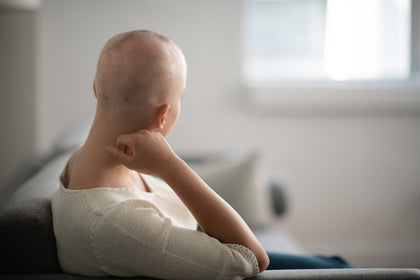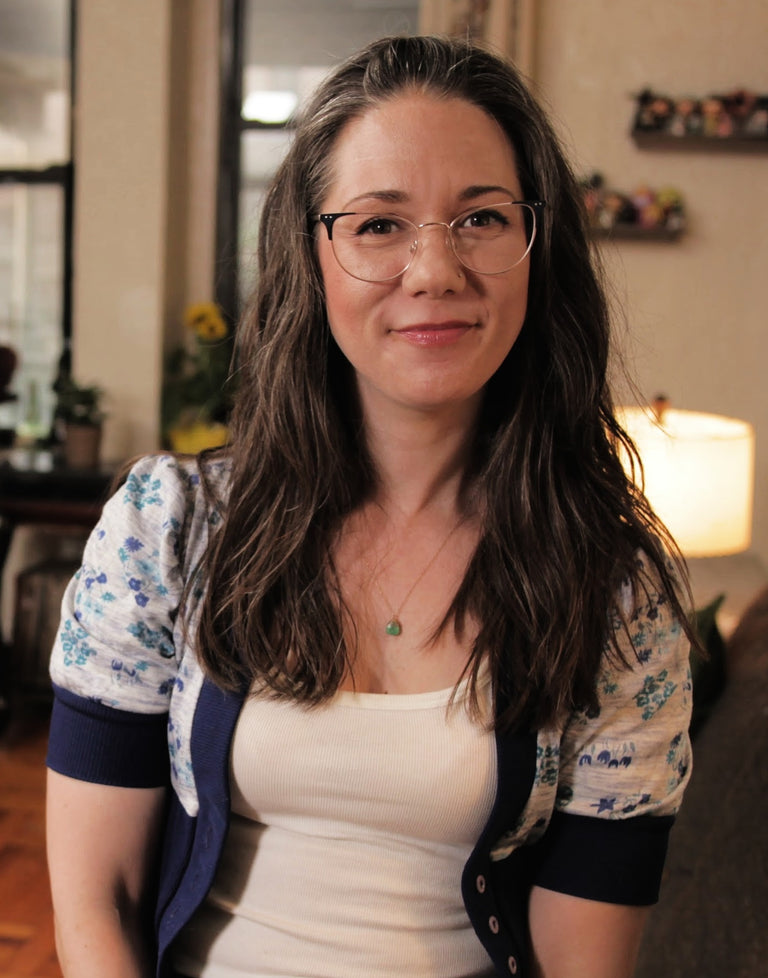Hair loss may seem like a singular event and an unsettling one at that. But beyond the primary visible loss of hair — down at the level of our follicles and the bodily systems that impact them— the causes of hair loss can be quite complex and varied.
What is alopecia universalis? How is it treated, and is it reversible? Read on to unpack this particular type of hair loss, including what you might expect with this condition, expert tips for managing alopecia universalis.
What Is Alopecia Universalis?
When most people hear “hair loss,” they think of hair loss on the scalp, but with alopecia universalis, the associated loss presents quite differently.
The word “alopecia” refers to hair loss, and universalis refers to its total impact. Therefore, alopecia universalis is a rare, unique and specific kind of hair loss that affects the entire body. It is estimated to impact up to 200,000 people in the United States.
The most common characteristics and symptoms that could signal the onset of AU include the loss of hair on the scalp and body, as well as the eyebrows and eyelashes. People with AU can also lose nasal hair or pubic hair.
Burning, itching or other discomforts of the skin in the affected areas may occur, but some people only experience hair loss.
What Causes It: The Alopecia Areata Connection
“Alopecia universalis is a type of alopecia areata,” explained Dr. Viktoryia Kazlouskaya, a dermatologist with the University of Pittsburgh.
In fact, alopecia universalis is considered to be the most advanced presentation of alopecia areata (AA), an autoimmune disease that causes hair loss. Alopecia areata can present in different ways, though most commonly, it causes round patches of hair loss on the scalp.
We don't have a clear understanding as to what might trigger alopecia areata or the family of hair loss conditions that occur under it, including AU. Howeve,r they might be related to immune system dysfunction. “Though the exact cause is unknown, AU is thought to be an autoimmune condition — meaning it is caused by a fault in the immune response,” explained Dr. Enrizza P. Factor, a clinical dermatologist and researcher.
According to Dr. Michael May, medical doctor and principal surgeon at the Wimpole Clinic, the underlying autoimmune disease in both AA and AU happens “when the immune system acts abnormally, instead of protecting the hair follicles, it destroys them,” he said. “This skin condition may be closely tied to genetics, an individual’s stress levels and an existing autoimmune disorder.”
Alopecia areata, including alopecia universalis, can come on quite suddenly or it may develop, worsen and spread over time. Patients might have a single episode of patchy hair loss that resolves itself without treatment, though AA can become chronic and eventually spread to the entirety of the head (called alopecia totalis) or, in the case of alopecia universalis, to the whole body.
Get the Full Picture: Alopecia Areata Explained
How Is AU Different From Other Hair Loss Conditions?
There are other hair loss conditions that are similar to AU, and this can lead to confusion when trying to understand this specific hair loss condition. In particular, there are two types of loss that present in very similar ways: alopecia totalis and anagen effluvium.
Alopecia Totalis vs. Alopecia Universalis
Alopecia totalis is a different, less severe form of alopecia areata as compared to alopecia universalis. While AU is characterized by a loss of all body hair, alopecia totalis is contained to hair loss on the entire scalp. Alopecia totalis, which can include a near-total or total loss of hair on the scalp, can worsen and become alopecia universalis. The key difference between the two is the severity of hair loss, though they are both caused by a shared autoimmune disease.
Anagen Effluvium vs. Alopecia Universalis
Anagen effluvium is another form of near-complete or complete hair loss on the scalp, though the underlying cause is quite different from either alopecia totalis or universalis.
“In contrast, anagen effluvium happens because of some toxic event, usually chemotherapy,” said Dr. Kazlouskaya.
Find Out: Everything You Need to Know About Anagen Effluvium
How Is Alopecia Universalis Diagnosed?
If you notice new hair loss, suddenly develop a bald patch on your head or body or notice hair loss from your eyebrows or eyelashes, see your primary care physician or a dermatologist right away. As with many forms of hair loss, early diagnosis and treatment offer the best chances for regaining regular hair growth.
Your doctor will examine the affected areas. A scalp biopsy might also be needed to help confirm the diagnosis and rule out other causes, like a fungal infection of the scalp. Also, because a variety of health conditions can cause hair loss, your doctor will probably do blood tests to rule out other common causes like a lack of iron, thyroid issue or a hormonal imbalance.
How Is AU Treated?
There is currently no cure for treating alopecia areata or any of its presentations, including alopecia universalis. “Treatment of alopecia universalis is challenging,” said Dr. Kazlouskaya. “Immunosuppressive agents are needed if a person chooses to treat it medically, but that comes with additional risks and a need to follow up with the dermatologist on a regular basis. New medications, called JAK inhibitors, are showing promise in treating severe alopecia areata cases, but they are not yet FDA approved and used off-label."
With that said, the natural course of AA is unpredictable.
“Because of the uncertainty of this skin disorder, there’s no way to predict your outcome,” said Dr. Factor. “Alopecia universalis can be a permanent or a temporary condition, and the odds of a positive outlook are higher the earlier you begin treatment.”
Tips for Managing Alopecia Universalis
Developing a condition like alopecia areata universalis can be devastating. Because so much of a person’s identity can be tied to their physical appearance, losing one’s hair can be a source of constant embarrassment, mental anguish and even shame. While these are all totally normal reactions to hair loss, they can be hard to deal with. But you're not alone.
McKenna Reitz developed alopecia universalis after the birth of her third child. What started out as round patchy hair loss quickly progressed into extensive hair loss followed by a complete and total loss all over her body. After a stressful period of seeing specialists and trying various forms of treatment, nothing helped.
This experience helped McKenna see how isolating and devastating hair loss can be, which inspired her to become a life coach and motivational speaker. One of her most important takeaways is the importance of community and support.
“Lean on people for support. As much as we feel that our hair is our identity, it is our character that defines us. However, it will take time to transform your mindset, and that is OK! Know you are not alone,” she told VEGAMOUR.
Organizations like the National Alopecia Areata Foundation offer resources and can connect you to local support groups, and you can always consider seeing a therapist or other mental health professional for more individualized support.
In addition to supporting your mental wellness, Dr. Kazlouskaya advocates for supporting physical wellness with a well-balanced and healthy diet with plenty of protein. “As we learn more and more about comorbidities in patients with alopecia areata and patients possibly having [a] higher risk of cardiovascular disorder and endothelial damage, eating a healthy diet, in general, will help,” she said.
Some people with autoimmune conditions elect to follow the Autoimmune Protocol Diet to minimize inflammation in the body, and while more research is needed, new data suggests that diet can impact AA.
“Stress is another important factor, so relaxation methods like yoga, meditation and affirmations can help to cope with the disease,” said Dr. Kazlouskaya.
Related: Everything You Should Know About Stress and Hair Loss
The Takeaway
Alopecia universalis is a form of alopecia areata, a family of autoimmune hair loss conditions. Unlike the patchy hair loss that is associated with alopecia areata, alopecia universalis is characterized by the complete loss of hair all over the body. These conditions can be unpredictable, with their progression and response to treatment varying widely from person to person. If you’ve noticed new hair loss or hair loss on your body, see a doctor or dermatologist as soon as possible.
More From VEGAMOUR
- Hair Loss & Thyroid Disorders — What You Need to Know
- 6 Times You Should See a Trichologist
- 5 Ways Your Hormones Impact Your Hair
- What Is Diffuse Alopecia Areata?
Photo credit: FatCamera/iStock



















